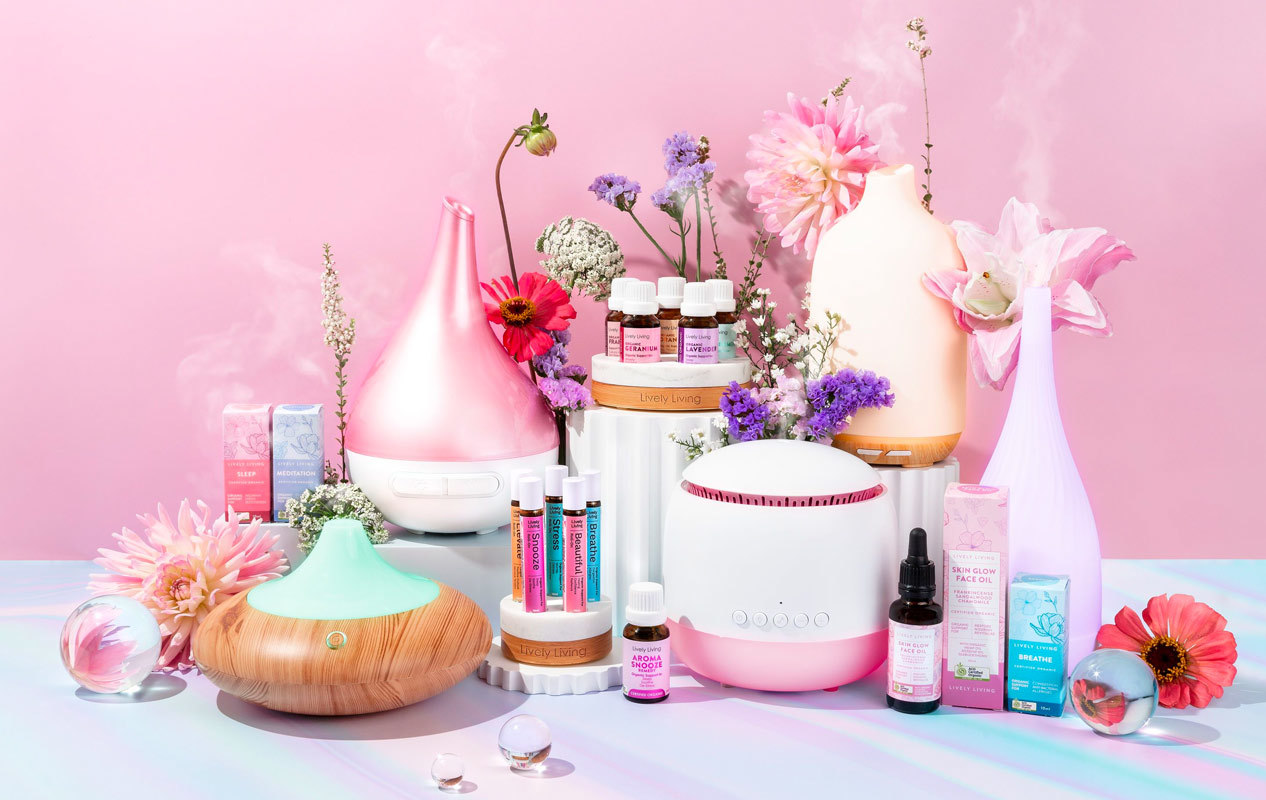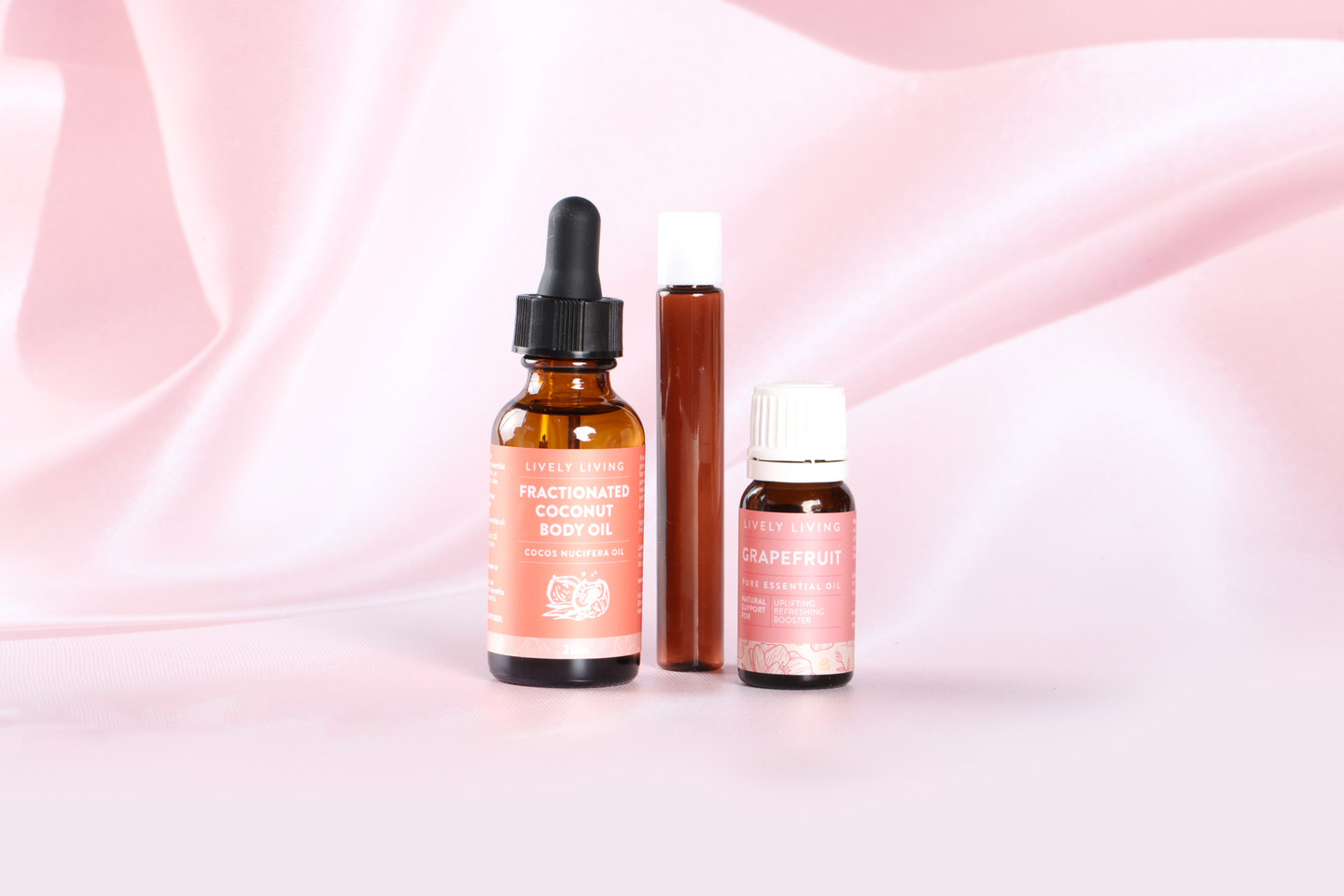Unlocking the Powerful Benefits of Citrus Essential Oils
Benefits of citrus essential oils are becoming widely recognized as people seek natural ways to enhance their well-being. These oils, derived from the peels of fruits like oranges, lemons, grapefruits, and limes, not only smell amazing but also offer a range of potential health benefits. From their mood-boosting and calming effects to their antibacterial and antifungal properties, citrus essential oils offer a lot to explore. In this article, we'll explore the benefits of citrus essential oils, including the properties of each oil, their uses, safety precautions, and scientific evidence supporting their potential health advantages.
These days, more people are exploring natural methods for managing stress and improving overall health. Benefits of citrus essential oils make them ideal for those seeking a holistic approach to well-being.
Table Of Contents:
- A Burst of Sunshine: Understanding Citrus Essential Oils
- A Multifaceted Wonder: Exploring the Benefits of Citrus Essential Oils
- FAQs about Benefits of Citrus Essential Oils
- Conclusion
A Burst of Sunshine: Understanding Citrus Essential Oils
Citrus essential oils are highly concentrated plant extracts obtained from the rinds or peels of citrus fruits. They capture the essence of these fruits, providing us with therapeutic and aromatic benefits.
Extraction Methods
The most common method for extracting citrus essential oils is cold-pressing. This is where the peels are mechanically pressed to release the oil. However, lime essential oil can be produced through steam distillation.
This involves passing steam through the peels, extracting the oil through evaporation and condensation.
Composition
Citrus essential oils are rich in compounds like limonene, pinene, and citral. Each contributes to their unique therapeutic and aromatic properties. The composition of each oil varies based on the type of citrus fruit and the extraction method used.
Knowing this helps us understand their purity and effectiveness. It’s important to be informed.
A Multifaceted Wonder: Exploring the Benefits of Citrus Essential Oils
Citrus essential oils have been used for centuries in traditional medicine, aromatherapy, and even household cleaning. Let's look at some possible health benefits associated with various citrus essential oils.
Keep in mind that more scientific research is needed to solidify these claims.
Lemon Essential Oil
Lemon essential oil, extracted from the zest of fresh lemons, has become increasingly popular due to its versatile uses and potential benefits. While more research is always needed, studies indicate the possible positive impact this oil might have.
Remember that before incorporating essential oils into your routine, you should talk with your doctor to learn about the quality of a brand’s products.
Uplifting Mood and Relieving Stress
Lemon oil is often used to boost mood and reduce stress. Research supports this: a 2006 study on mice found lemon essential oil to have mood-improving effects during stress tests. It was shown to be even more effective than lavender and rose.
A 2016 study on humans saw anxiety reduced among those using lemon oil post-surgery.
Nausea Relief
For pregnant women, lemon oil could be helpful with morning sickness. A 2014 study found that aromatherapy with this oil noticeably reduced nausea and vomiting in pregnant women.
Antibacterial and Skin Benefits
Lemon oil can help fight off bacteria, thanks to its antimicrobial properties. Research backs this up: a study showed it to be effective against Staphylococcus aureus and E. coli, bacteria that live on the skin and can cause infection.
This could make it a natural option for treating small wounds topically. Furthermore, research in 2017 and 2018 found evidence for lemon oil's effectiveness against infection-causing bacteria, even potentially preventing skin inflammation.
Pain Relief
Used in aromatherapy, lemon essential oil can act as a natural pain reliever. Although more research on humans is necessary, a 2014 study found lemon oil changed how mice brains reacted to pain, suggesting potential pain relief properties.
It is thought that its mood-boosting and stress-reducing benefits play a role in how we perceive pain, offering a sense of calm instead of panic.
Boosting Brainpower
Surprisingly, lemon oil could help with concentration and cognitive function. A 2004 study saw improved exam scores in students who had lemon oil diffused in their classrooms during language lessons. It seems the refreshing scent aids in mental clarity.
Other Citrus Essential Oils
Beyond lemon, a whole array of citrus oils exist, each offering its own potential advantages.
Sweet Orange Essential Oil
Sweet orange essential oil is a staple in aromatherapy. It’s prized for its mood-lifting qualities and potential ability to calm nerves and promote relaxation.
Grapefruit Essential Oil
This oil, known for its energizing and invigorating aroma, may be helpful for boosting energy levels and focus, similar to other citrus oils like lemon. In some cultures, grapefruit oil has even been used as a natural aid for promoting healthy digestion.
Lime Essential Oil
With its refreshing, clean scent, lime oil can be uplifting. It also finds a place in natural cleaning products due to its potent antimicrobial properties. It is known for eliminating bacteria and freshening up living spaces.
Cautions and Safe Practices When Using Citrus Oils
While citrus oils can offer numerous benefits, using them responsibly and understanding possible risks is crucial. This is where a knowledgeable healthcare professional can give proper guidance, especially for pregnant women, nursing mothers, or individuals with allergies.
Phototoxicity
Many citrus oils are phototoxic, meaning they can cause skin reactions if exposed to sunlight after application. While not as strongly phototoxic as some others, lemon oil can increase the sun’s harmful effects, leading to redness or even burns.
Avoiding sun exposure for 12 to 18 hours after applying citrus oils is best.
Allergies and Skin Sensitivities
Essential oils are powerful. As a precaution, you should do a patch test on a small area of skin before applying citrus oils more widely.
A patch test involves applying a diluted essential oil to your skin, typically the inner arm. You wait for 24 hours to observe any reaction. A red, itchy, or irritated patch suggests an allergy. Citrus oil use should stop immediately in such cases.
Proper Dilution
Never apply essential oils directly to the skin without diluting them with a carrier oil like jojoba oil, almond oil, or coconut oil. Each citrus essential oil will have recommended dilution ratios.
So always consult product guidelines or consult a professional aromatherapist to understand the proper dilution methods.
Enhancing Your Life: Incorporating Citrus Essential Oils
Now, how can you make use of the versatile benefits of citrus essential oils? There are numerous methods. These range from simple diffusion to more focused therapeutic applications.
Aromatherapy: A Gateway to Serenity and Invigoration
Aromatherapy, one of the most common uses, utilizes scent for healing purposes. A diffuser helps achieve this by gently dispersing the citrus aroma in a room. Consider adding a few drops of lemon or sweet orange essential oil to your diffuser before bedtime for a relaxing effect.
Or start your day with the stimulating energy of grapefruit or lime essential oil. An essential oil diffuser machine allows you to bring the benefits of citrus oils into your home. It fills the air with a captivating scent, adding to your ambiance while offering mood-enhancing properties.
Choosing and Using a Diffuser
You can find different types of essential oil diffusers online or at stores specializing in aromatherapy. Essential oil diffusers bring several potential advantages to your life. Always consult each diffuser's instructions, as water amount and essential oil drop counts vary.
Experiment with different citrus oils, single or blended, based on the effects you’re seeking.

Beyond Diffusion: Exploring Other Methods
Diffusing is only one method to harness the power of these aromatic oils. Experiment with other approaches for specific applications.
Need some pampering? Mix a couple of drops of citrus oil with a carrier oil and give yourself a refreshing foot massage, allowing you to relax and unwind. Remember to follow proper dilution ratios. You can also add a few drops of lime or lemon essential oil to your cleaning solutions.
These oils’ antibacterial and cleaning properties offer a chemical-free alternative, leaving your home smelling delightful. For those interested in blending oils or learning about synergy benefits, a plethora of resources is available online. For beginners venturing into the world of aromatherapy, consider purchasing an essential oil starter kit.
This is a convenient way to try different blends, especially those geared toward specific benefits, from calming blends to focus and energy. Lively Living offers an essential oils range with options for every need.
Whether it’s relaxation, stress relief, a boosted mood, a sense of calm, or even enhanced concentration, citrus oils could make a valuable addition to your daily life.
Looking for a quick and convenient way to enjoy citrus essential oil goodness? Roll-on blends, perfect for aromatherapy on the go, might just be the ticket. The calming aroma of these blends, combined with the topical application, allows a direct and personal experience.
These are easy to carry around and discreet, offering aromatherapy benefits wherever you are. Imagine applying a soothing roll-on blend to your temples while stuck in traffic or during a stressful workday. A citrus-based roll-on, applied before a challenging task, could be that extra nudge towards increased focus.
While citrus oils offer a plethora of applications, understanding their limitations is important. Essential oils aren’t meant to be substitutes for prescribed medical treatments. However, when combined with the guidance of a healthcare professional, these aromatic wonders can nicely complement your current routine, opening up avenues to natural wellness and stress management.
Creating Your Own Citrus Oil Blends: A Step-by-Step Guide
As we discover more about individual oils, crafting your personalized blends might be the next step. Blending allows a wider spectrum of benefits.
1. Identify Your Desired Benefit:
Pinpoint your reason for blending. This is important because relaxation might require different oils compared to an energy blend. Lavender and sweet orange might be a good combination if relaxation is what you’re after.
But for an energy boost, a blend of lime and grapefruit might be the ticket. These two blends use entirely different citrus oils based on what benefits you’re seeking, because not all oils are created equal. And each serves its own specific purpose.
2. Research the Oils and Their Synergies:
Read up on specific citrus oils. Understanding their properties and how well they pair together is important. As an example, lime and bergamot essential oil offer cleansing benefits, making them perfect additions to household cleaning products.
Whereas, sweet orange, blended with lavender, may encourage a calmer environment.
3. Choose a Carrier Oil
When working with potent essential oils, remember dilution is key. Always pick a high-quality carrier oil, as this will act as the base. Popular options are coconut, jojoba oil and sweet almond oil.
Jojoba oil closely mimics the skin's sebum and doesn't easily clog pores, a good choice for acne-prone skin. Sweet almond oil has moisturizing and soothing properties, especially great for dry or sensitive skin. Research different oils and match them based on what’s best for your skin type.

4. Calculate and Measure Carefully
Once you’ve decided on the blend's purpose and its components, accurate measuring is critical. Essential oils are concentrated so starting with a lower ratio of essential oil to carrier is advisable, around 2 to 3%.
This translates to approximately 12 drops of essential oil per ounce (30 ml) of carrier. Increase the percentage if you prefer a stronger blend later, as each person’s skin has different sensitivities.
5. Conduct a Patch Test
No matter how much research you've done, a patch test is a must. Apply your blend to a small, discreet area. As we’ve discussed, allergies are unpredictable, even to citrus fruits or carrier oils. An itchy red patch means you need to revise your blend.
FAQs about Benefits of Citrus Essential Oils
What are citrus oils best known for?
Citrus oils like lemon, lime, and sweet orange are cherished for their uplifting scents, which can help boost mood, reduce stress, and freshen up the air. Many also have antibacterial and antifungal qualities, making them useful for cleaning.
This helps explain why they're often added to natural cleaning products or diffused in a room. The citrusy aroma leaves you feeling more alert.
Is there any risk with applying citrus oils topically?
Yes, especially sun sensitivity. Phototoxicity is a common concern, especially with bergamot and grapefruit essential oil. Even lemon oil, though milder in this aspect, should be used cautiously, avoiding sun exposure after application.
Always patch-test your blend on a small skin area before using it. And dilution is critical.
Are all citrus oils the same?
They are not. Although they share uplifting characteristics, each has its own subtle properties and chemical composition. This is why researching and blending oils based on individual needs is vital. Each type, from lemon to grapefruit and bergamot, offers a unique aromatherapy experience.
For example, one summer afternoon I felt overwhelmed and anxious. I chose to diffuse a blend of sweet orange and lavender in my bedroom, creating a serene and peaceful atmosphere that truly helped calm my nerves. That's when I really understood the unique qualities each citrus oil could offer.
Conclusion
The use of citrus essential oils extends far beyond simply freshening up your home. The range of potential benefits, from their refreshing aroma to possible medicinal applications, make them more than just pleasing scents. If you're looking to improve your mood, fight bacteria or just unwind after a long day, exploring the possibilities of these oils can lead to natural paths towards enhancing your well-being.
However, don't forget to prioritize your health and safety when using these oils. You must remember that before incorporating essential oils into your routine, talk with your healthcare provider, especially if you have underlying health issues or are pregnant or nursing. As we have discussed in this article, there are certain things you must know before beginning your citrus essential oil journey, for example, phototoxicity which must be taken seriously.
Responsible use ensures a safe, joyful journey towards holistic well-being. Combining scientific knowledge with centuries of traditional wisdom, benefits of citrus essential oils truly unlock an enriching experience.





















